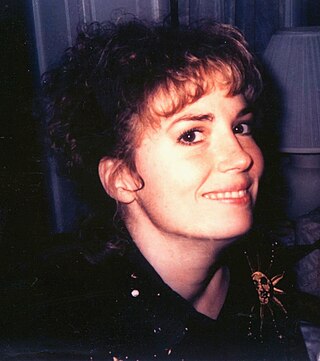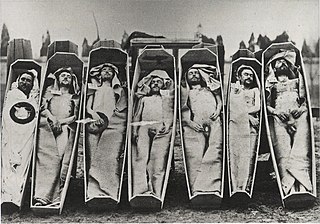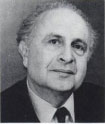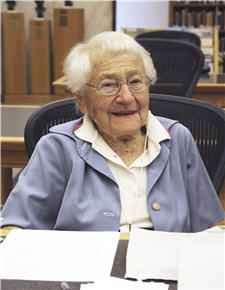Related Research Articles
A psychiatrist is a physician who specializes in psychiatry. Psychiatrists are physicians and evaluate patients to determine whether their symptoms are the result of a physical illness, a combination of physical and mental ailments or strictly mental issues. Sometimes a psychiatrist works within a multi-disciplinary team, which may comprise clinical psychologists, social workers, occupational therapists, and nursing staff. Psychiatrists have broad training in a biopsychosocial approach to the assessment and management of mental illness.
Anti-psychiatry, sometimes spelled antipsychiatry without the hyphen, is a movement based on the view that psychiatric treatment is often more damaging than helpful to patients, highlighting controversies about psychiatry. Objections include the reliability of psychiatric diagnosis, the questionable effectiveness and harm associated with psychiatric medications, the failure of psychiatry to demonstrate any disease treatment mechanism for psychiatric medication effects, and legal concerns about equal human rights and civil freedom being nullified by the presence of diagnosis. Historical critiques of psychiatry came to light after focus on the extreme harms associated with electroconvulsive therapy or insulin shock therapy. The term "anti-psychiatry" is in dispute and often used to dismiss all critics of psychiatry, many of whom agree that a specialized role of helper for people in emotional distress may at times be appropriate, and allow for individual choice around treatment decisions.
The American Psychiatric Association (APA) is the main professional organization of psychiatrists and trainee psychiatrists in the United States, and the largest psychiatric organization in the world. It has more than 38,000 members who are involved in psychiatric practice, research, and academia representing a diverse population of patients in more than 100 countries. The association publishes various journals and pamphlets, as well as the Diagnostic and Statistical Manual of Mental Disorders (DSM). The DSM codifies psychiatric conditions and is used mostly in the United States as a guide for diagnosing mental disorders.

Dissection is the dismembering of the body of a deceased animal or plant to study its anatomical structure. Autopsy is used in pathology and forensic medicine to determine the cause of death in humans. Less extensive dissection of plants and smaller animals preserved in a formaldehyde solution is typically carried out or demonstrated in biology and natural science classes in middle school and high school, while extensive dissections of cadavers of adults and children, both fresh and preserved are carried out by medical students in medical schools as a part of the teaching in subjects such as anatomy, pathology and forensic medicine. Consequently, dissection is typically conducted in a morgue or in an anatomy lab.
The Doctorate of Medicine and of Philosophy (MD–PhD) is a dual doctoral degree for physician–scientists, combining the professional training of the Doctor of Medicine degree with the research expertise of the Doctor of Philosophy degree; the Ph.D. is the most advanced credential in the United States. Other dual degree programs exist, such as the joint MD–JD degree; both the JD professional degree and the MD are not universally recognized internationally, however. The National Institutes of Health currently provides 50 medical schools with Medical Scientist Training Program grants that support the training of students in MD–PhD programs at these institutions through tuition and stipend allowances. These programs are often competitive, with some admitting as few as two students per academic year. The MCAT score and GPA of MD–PhD matriculants are often higher than MD only matriculants.

Since the founding of the Church of Scientology in 1954 by L. Ron Hubbard, the relationship between Scientology and psychiatry has been dominated by strong opposition by the organization against the medical specialty of psychiatry and of psychology with themes relating to this opposition occurring repeatedly throughout Scientology literature and doctrine. According to the Church of Scientology, psychiatry has a long history of improper and abusive care. The group's views have been disputed, criticized, and condemned by experts in the medical and scientific community and have been a source of public controversy.

Robert Whitaker is an American journalist and author, writing primarily about medicine, science, and history. He is the author of five books, three of which cover the history or practice of modern psychiatry. He has won numerous awards for science writing, and in 1998 he was part of a team writing for the Boston Globe that was shortlisted for the 1999 Pulitzer Prize for Public Service for a series of articles questioning the ethics of psychiatric research in which unsuspecting patients were given drugs expected to heighten their psychosis. He is the founder and publisher of Mad in America, a webzine critical of the modern psychiatric establishment.

The National Institute of Mental Health and Neuro-Sciences is a medical institution in Bangalore, India. NIMHANS is the apex centre for mental health and neuroscience education in the country. It is an Institute of National Importance operating autonomously under the Ministry of Health and Family Welfare. NIMHANS is ranked 4th best medical institute in India, in the current National Institutional Ranking Framework.

Carola Blitzman Eisenberg was an Argentine-American psychiatrist who became the first woman to hold the position of Dean of Students at the Massachusetts Institute of Technology. From 1978 to 1990, she was the dean of student affairs at Harvard Medical School (HMS). She was a long-time lecturer in the Department of Global Health and Social Medicine at HMS. She was also both a founding member of Physicians for Human Rights and an honorary psychiatrist with the Massachusetts General Hospital in Boston. After retiring, she was involved in human rights work through Physicians for Human Rights, the Institute for Healthcare Improvement, and elsewhere. She turned 100 in September 2017 and died in Lincoln, Massachusetts, in March 2021 at the age of 103.

A cadaver or corpse is a dead human body. Cadavers are used by medical students, physicians and other scientists to study anatomy, identify disease sites, determine causes of death, and provide tissue to repair a defect in a living human being. Students in medical school study and dissect cadavers as a part of their education. Others who study cadavers include archaeologists and arts students. In addition, a cadaver may be used in the development and evaluation of surgical instruments.
Geriatric psychiatry, also known as geropsychiatry, psychogeriatrics or psychiatry of old age, is a branch of medicine and a subspecialty of psychiatry dealing with the study, prevention, and treatment of neurodegenerative, cognitive impairment, and mental disorders in people of old age. Geriatric psychiatry as a subspecialty has significant overlap with the specialties of geriatric medicine, behavioural neurology, neuropsychiatry, neurology, and general psychiatry. Geriatric psychiatry has become an official subspecialty of psychiatry with a defined curriculum of study and core competencies.

Michael Shepherd, CBE, FRCP, FRCPsych (Hon), FAPA (Corr), FAPHA was one of the most influential and internationally respected psychiatrists of his time, formerly Professor of Epidemiological Psychiatry, Institute of Psychiatry and Consultant Psychiatrist, The Maudsley Hospital, London and author of a number of influential publications in the field of psychiatry, including the seminal work Psychiatric Illness in General Practice.

Jacob M. Appel is an American polymath, author, bioethicist, physician, lawyer and social critic. He is best known for his short stories, his work as a playwright, and his writing in the fields of reproductive ethics, organ donation, neuroethics, and euthanasia. Appel's novel The Man Who Wouldn't Stand Up won the Dundee International Book Prize in 2012. He is the director of Ethics Education in Psychiatry and a professor of psychiatry and medical education at the Mount Sinai School of Medicine, and he practices emergency psychiatry at the adjoining Mount Sinai Health System. Appel is the subject of the 2019 documentary film Jacob by director Jon Stahl.
Charles Joseph Sophy is an American psychiatrist. He is a former medical director for the County of Los Angeles Department of Children and Family Services. He is also a member of the Dr. Phil show's advisory board and is a frequent guest on the show and other TV shows and stations including CNN, Today, HLN, and Dr. Drew. He has many celebrity clients and has worked with Paris Hilton, Michael Jackson and Mel B.
The Indian Psychiatric Society (IPS) is the oldest professional association of psychiatrists in India. Founded during the 34th Indian Science Congress, IPS replaced the Indian division of the Royal Medico-Psychological Association.
Beatrix Ann Hamburg was an American psychiatrist whose long career in academic medicine advanced the field of child and adolescent psychiatry. Hamburg was the first known African-American to attend Vassar College, and was also the first African-American woman to attend Yale Medical School. Hamburg held professorships at Stanford, Harvard, Mt. Sinai and—most recently—at Weill Cornell Medical College. She was on the President's Commission on Mental Health under President Jimmy Carter. Hamburg was a president of the William T. Grant Foundation, and also directed the child psychiatry divisions at Stanford University and Mount Sinai. She originally was going to go into pediatric medicine, but instead found herself interested in psychiatry. She researched early adolescence, peer counseling, and diabetic children and adolescents. She was a member of the National Academy of Medicine and a fellow of the American Association for the Advancement of Science. She received a Foremother Award for her lifetime of accomplishments from the National Research Center for Women & Families in 2012.
Dinesh Kumar Makhan Lal Bhugra is a professor of mental health and diversity at the Institute of Psychiatry at King's College London. He is an honorary consultant psychiatrist at the South London and Maudsley NHS Foundation Trust and is former president of the Royal College of Psychiatrists. He has been president of the World Psychiatric Association and the President Elect of the British Medical Association.
Jeanne Marybeth Spurlock was an American psychiatrist, professor and author. She served as the deputy medical director of the American Psychiatric Association for seventeen years. She chaired the Department of Psychiatry at Meharry Medical College starting in 1968, and she taught at George Washington University and Howard University. She also operated her own private psychiatry practice, and she published several works.

Lucy Dorothy Ozarin was a psychiatrist who served in the United States Navy. She was one of the first women psychiatrists commissioned in the Navy, and she was one of seven female Navy psychiatrists who served during World War II.

Thara Rangaswamy is a psychiatrist in India, the co-founder of an NGO called SCARF based in Chennai, India. She is a researcher in schizophrenia and community mental health. In 2020, she received the SIRS Outstanding Clinical and Community Research Award of SIRS, an apex body for work on schizophrenia in Florence, Italy.
References
- ↑ Almond, Elliott (1993-04-05). "A Lighter Shade of Blue: Montross' Family Has a Michigan Tradition, but North Carolina Hopes". Los Angeles Times. Retrieved 2018-04-18.
- 1 2 Harvey, Charlotte Bruce (September 2007). "Anatomy Lesson". Brown Alumni Magazine. Retrieved 2015-07-19.
- ↑ Chimene-Weiss, Sara (2010-02-26). "Three alums receive prestigious fellowships for literature". Brown Daily Herald. Retrieved 2015-09-30.
- ↑ "Author: Christine Montross, MD'06, MMS'07, RES'10". Brown Medicine Magazine. Archived from the original on 2018-04-18. Retrieved 2015-09-30.
- ↑ Roach, Mary (2007-06-24). "Love and Human Remains". The New York Times. Retrieved 2015-07-19.
- 1 2 Shea, Rachel Hartigan (2007-07-16). "Anatomy of an Education". The Washington Post. Retrieved 2015-09-04.
- ↑ Jurecic, Ann; Marchalik, Daniel (2017-04-22). "A psychiatrist's search for resilience". The Lancet. 389 (10079): 1599. doi:10.1016/S0140-6736(17)31007-3. S2CID 205986366.
- ↑ "Body of Work: Meditations on Mortality from the Human Anatomy Lab". Kirkus Reviews . 2010-05-20. Retrieved 2015-07-19.
- ↑ "Q&A with Christine Montross". C-SPAN. 2007-07-12. Retrieved 2015-07-19.
- ↑ Roiphe, Katie (2007-01-01). "Editor's Choice". The New York Times. Retrieved 2015-09-04.
- ↑ "3 RI Writers Awarded MacColl Johnson Fellowships". Rhode Island: State Council on the Arts. February 11, 2010. Retrieved September 30, 2015.
- ↑ McGrath, Melanie (February 11, 2014). "Falling Into the Fire by Christine Montross, review". The Daily Telegraph. Retrieved July 19, 2015.
- ↑ Merit, Stephanie (March 9, 2014). "Falling Into the Fire review – a psychiatrist's impressive study of mental health". The Guardian. Retrieved July 19, 2015.
- ↑ Crist, Meehan (July 26, 2013). "'Falling Into the Fire' a piercing portrait of psychiatry". Los Angeles Times. Retrieved July 19, 2015.
- ↑ Driver, Justin (July 21, 2020). "Waiting for an Echo: The Madness of American Incarceration". The New York Times. Retrieved July 21, 2020.
- ↑ Wooldridge, Emily (April 10, 2015). "Brown University Prof. Honored With Guggenheim Fellowship". Rhode Island Public Radio. Retrieved July 19, 2015.
- ↑ Baldwin, Sarah (2017). "Social Justice League: A cadre of medical and legal advocates cares deeply about the health of people behind bars". Brown Medicine Magazine. Archived from the original on December 5, 2017. Retrieved December 5, 2017.